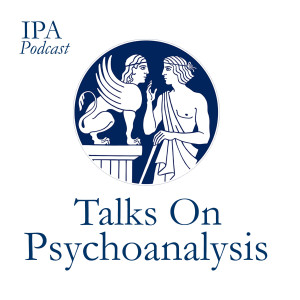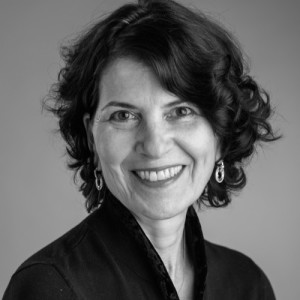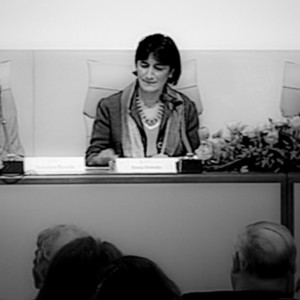Talks On Psychoanalysis
setting/frame
Episodes

Thursday Jun 05, 2025
Thursday Jun 05, 2025
What happens when the analytic setting—built on confidentiality and silence—meets the institutional demands of psychoanalytic training? Can the frame of supervision truly preserve the integrity of the analytic pact, or does it inevitably put it at risk?
In this episode, Ellen Sparer explores a central paradox in psychoanalytic formation: the tension between the confidentiality of analytic work and the structural requirements of supervision. Drawing from her experience at the Paris Psychoanalytic Institute, she asks whether supervision risks undermining the very foundation of the analytic situation—what Freud, in An Outline of Psychoanalysis, described as a pact in which “the patient’s sick ego promises us the most complete candour…” while “we, on the other hand, assure him of the strictest discretion.”
Through reflections on André Green, José Bleger, and Freud’s concept of disavowal, Sparer examines what she calls a “noisy contradiction”—a situation in which the analyst-in-formation becomes both observer and observed, and where the silence essential to the analytic space is disturbed by institutional structure. She invites us to consider the Institute’s role as a symbolic third—present, structuring, yet potentially unsettling—and to ask whether we can live with this paradox without disavowing its presence.
Rather than resolving the contradiction, this episode engages with it directly, as Ellen Sparer offers a nuanced and courageous inquiry into a space of ethical tension, institutional inheritance, and potential transformation at the core of analytic formation.
Ellen Sparer is a training analyst at the Paris Psychoanalytic Society and former Director of the Paris Institute of Psychoanalysis, a role she held until March 2025. She has served as co-chair of the Applicant Societies Committee of the IPA, where she contributed to the evaluation of emerging psychoanalytic groups seeking IPA recognition. She is also an Associate Editor of the International Journal of Psychoanalysis, where she’s part of the Education Section, and a scientific advisor for the Jahrbuch of Psychoanalysis. From 2009 to 2019, she was on the editorial board of the Revue Française de Psychanalyse. Most recently, she was elected to the IPA Board as a European representative.
Her scientific work and publications focus on the unconscious ego, supervision, training, the frame, and ethics. She has also written on countertransference phenomena, including the function of the analyst’s dream in the treatment process.
This Podcast Series, published by the International Psychoanalytical Association, is part of the activities of the IPA Communication Committee and is produced by the IPA Podcast Editorial Team.
Co-Editors: Gaetano Pellegrini and Nicolle Zapien.
Editing and Post-Production: Massimiliano Guerrieri.

Wednesday May 22, 2024
Wednesday May 22, 2024
What roles do the inanimate objects in the psychoanalyst’s office play in the treatment? Paintings on the walls, bookcases, armchairs, carpets, sculptures, and of course, the couch are simultaneously objects of external reality which are part of the frame, and they may also become part of the internal reality of the patient. Can these objects have an important effect on the progress and process of analytic treatment? It is these questions that Jacqueline Godfrind will address in this podcast episode.
Starting from theories of objects as autistic, transitional, resemblances and fetishized, put forth by Tustin, Winnicott, Searles and Kestemberg, she will broaden the reflection based on her own clinical observations of her analysands during a period when she redecorated her office. These objects, she illustrates, can become transferential objects, rich with important meanings and may support sensory or archaic investments, and this is even more the case in certain patients with fragile structures.
Jacqueline Godfrind is a full member and training analyst of the Belgian Society of Psychoanalysis of which she was scientific secretary, president and president of the teaching commission. She has long participated in training in child psychotherapy where she was a lecturer at the Free University of Brussels. She has further led multiple supervisions in various fields. In addition, she has a background as a child analyst and a long practice as an adult psychoanalyst. Her writings and publications are many including: The two currents of transference and Psychoanalysis beyond speech - the body which contain her reflections on the treatment clinic, and How femininity comes to women which addresses her interest in the feminine. She has participated in the production of several collective works, notably on topics as wide ranging as acting out in the treatment, and also in the work titled What is operative in the treatment, which won the Oedipus prize.
A subtitled version of this podcast is available on our YouTube channel: https://youtube.com/playlist?list=PLhxiwE76e0QaOquX3GujdwNLFsgxUQNXz&si=yf381EDu3pess6Yz
You can download a copy of the paper here: https://docs.google.com/document/d/1zzvBBjMdz5zs5RuFg3MswZfvuINkmNSp/edit?usp=share_link&ouid=100400904585889441765&rtpof=true&sd=true
This Podcast Series, published by the International Psychoanalytical Association, is part of the activities of the IPA Communication Committee and is produced by the IPA Podcast Editorial Team. Co-Editors: Gaetano Pellegrini and Nicolle Zapien. Editing and Post-Production: Massimiliano Guerrieri.
This episode has been produced in collaboration with Julia-Flore Alibert.
To stay informed about the latest podcast releases, please sign up today.
This episode has also been published in French.

Friday Feb 26, 2021
Friday Feb 26, 2021
Lena Theodorou Ehrlich is a Training and Supervising Analyst at the Michigan Psychoanalytic Institute, visiting faculty at the Denver Psychoanalytic Institute, and Clinical Supervisor at the University of Michigan, Department of Psychiatry. She has maintained a lively practice of psychoanalysis, psychotherapy and supervision in Ann Arbor, Michigan for 30 years. She is internationally recognized for her original contributions to the literature on beginning and deepening analysis and building and maintaining a psychoanalytic practice. Her 2019 paper, Teleanalysis: Slippery slope or rich opportunity? won the 2019 Journal of the American Psychoanalytic Association prize award for excellence in psychoanalytic scholarship and distinguished contributions to the journal. Her book, Psychoanalysis from the Inside Out: Developing and Sustaining an Analytic Identity and Practice is available on Amazon and the Routledge Press website.
email: lenaehrlich@drlenaehrlich.com
PSYCHOANALYSIS FROM THE INSIDE OUT.Developing and Sustaining an Analytic Identity and Practice.
Published July 29, 2020 by Routledge180 Pages

Wednesday Oct 07, 2020
Wednesday Oct 07, 2020
In this episode, Marie-Thérèse Khair Badawi presents her paper: “Being, Thinking, Creating: When War Attacks the Setting and the Transference Counter-Attacks”.
This text, published in 2011 concerning the attack of the psychoanalytical setting in war conditions, has revealed the interest of many psychoanalysts during the Covid-19 pandemic which attacks also the setting. The questioning trying to find an issue in a situation of war where the psychoanalysts and their patients are facing the same trauma against the unpredictable which attacks the invariance of the setting, seems to be a similar problematic in these two traumatic states and … even maybe to many others!
Marie-Thérèse Khair Badawi PHD, is Training Analyst of the International Psychoanalytical Association, member of the European Psychoanalytical Federation, of the Paris Psychoanalytical Society, co-founder and first President of the Lebanese Association for the Development of Psychoanalysis, the first IPA study group in an Arab speaking country. She is Professor Researcher at Saint-Joseph University of Beirut. Author of numerous publications translated from French to several languages among which one german translation was selected and many published in the Revue Française de Psychanalyse and the International Journal of Psychoanalysis. She has studied in depth themes on war, trauma, incest and sexuality, specially female sexuality and sexual identity. Her PHD thesis "Le désir amputé” published at L'Harmattan, Paris, 1986, is considered by UNESCO as one of the first reliable studies on female sexuality in the Middle East.
This text has been published in ten different languages and the version you can listen to in the podcast has been reduced for privacy reasons. For a complete reading of the paper please refer to:
Badawi, M.-T. (2011). Being, Thinking, Creating: When War Attacks the Setting and the Transference Counter-Attacks. Int. J. Psycho-Anal., 92(2):401-409.
Badawi, M.-T. (2011). Être, penser, créer : quand la guerre attaque le cadre et que le transfert contre-attaque. Rev. Franç Psychanal, 75(4):1035-1043.
"Le désir amputé"L'Harmattan, Paris, 1986.
This episode is available also in French and Italian

Sunday Sep 06, 2020
Sunday Sep 06, 2020
Link to the paper https://drive.google.com/file/d/17tUskQlP-KG6BYBwYFWKnRHlzwDq4jWf/view?usp=sharing
In today's episode Anna Ferruta presents an excerpt from her article published in 2014 in The Italian Psychoanalytic Annual entitled: “The Analytic Setting and Space for the other”.
Anna Ferruta is Psychologist, Full Member and Training Analyst of the Italian Psychoanalytical Society and of the International Psychoanalytical Association. She works as a psychoanalyst in Milan, Italy, specialising in the treatment of sever psychic pathologies and the psychodynamics of institutional working groups. She is a founding member of Mito&Realtà: Association for Therapeutic Communities. Other appointments have included Vice-Director of Psiche, Lecturer in Psychiatry at the University of Pavia, and consultant in the Neurological Institute C. Besta, in Milan. She is the author of several Italian and international publications.
Etude Op. 25 no. 4 in A minor - 'Paganini' comes from https://musopen.org
This episode is available also in Italian